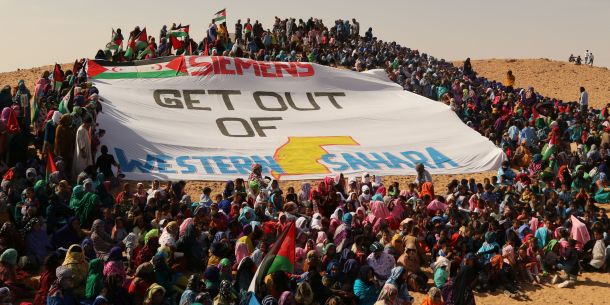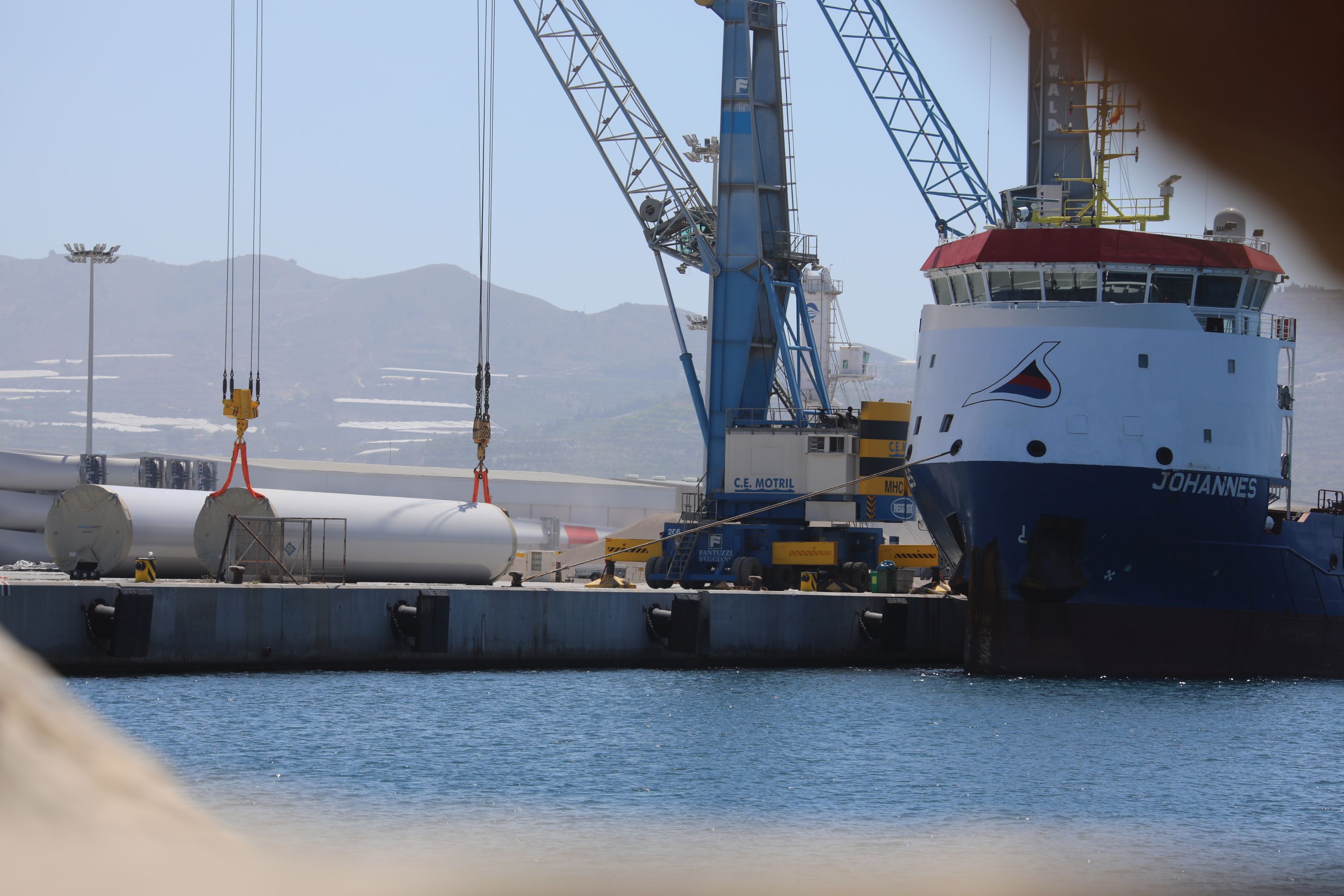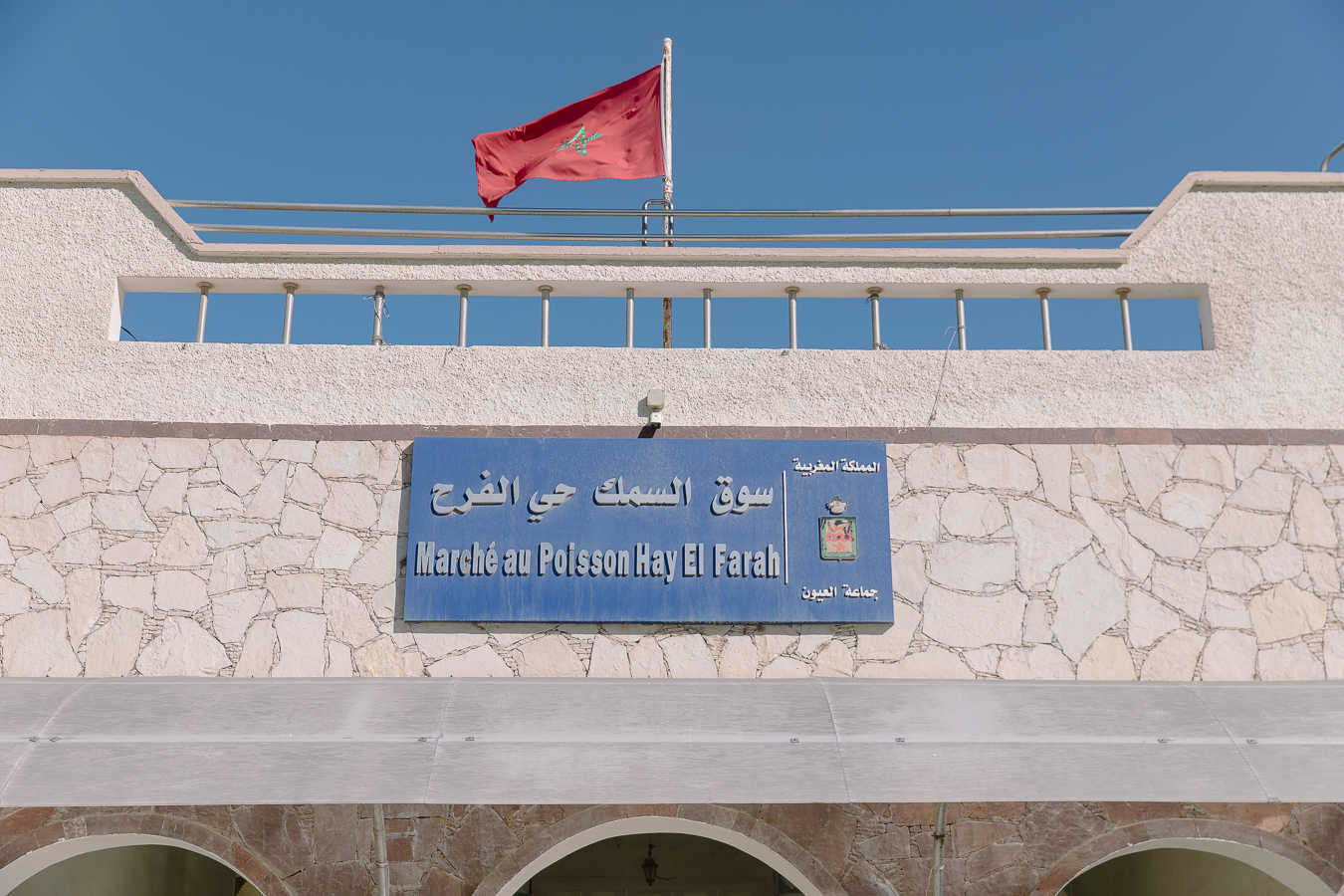
The German government has clarified that no export credit guarantees can be given to projects in Western Sahara.
The German company Siemens is heavily involved in building windfarms in occupied Western Sahara. The territory is under Moroccan occupation, and treated by the UN as a non-self-governing territory. In partnership with a company owned by the Moroccan King, Siemens is contributing to deeply undermining the UN peace process by building multi-million Euro energy infrastructure in the territory. The establishment of the German multinational in the occupied territory has raised the question as to whether German funds can be used for the controversial business.
The Federal Government has already given an important response to that question.
In the German Bundestag on 18 December 2017, the government clarified that it cannot financially support any commercial involvement in the territory.
“The Federal Government does not support the economic activities of German companies in Western Sahara and does not secure business through export credit and investment guarantees”, the State Secretary at the Federal Ministry for Economic Affairs and Energy in Germany, Mr. Matthias Machnig stated.
The decision exposes the increasing vulnerability of and risks to German companies present in or trading with Moroccan interests in the occupied territories. Besides Siemens, the companies HeidelbergCement and Continental have interests in Western Sahara The government through its reply last December underscores its understanding of international law concerning business ties with Rabat in the territory.
Germany thus has the same policy regarding its export credit mechanisms as the Scandinavian countries (see position of the export credit agencies in Denmark, Sweden, Norway). The USA stated something similar for the USTDA in 2005.
Germany has two export credit agencies, Kreditanstalt für Wiederaufbau (KFW) and Hermesdeckung.
KfW has been reported several times in Moroccan media as a supporter of projects in Western Sahara. See for instance this story in Les Eco, 17 November 2016 (or download).
However, those allegations of German support to energy projects in Western Sahara are not correct. "I can confirm that the two below articles are misleading. KfW is co-financing only NOOR IV in Ouarzazate / Morocco and not NOOR Laayoune and NOOR Boujdour", a representative of KfW wrote to WSRW on 3 March 2017, referring to the Les Eco article and another story.
"KfW Development Bank is financing several renewable energy projects in Morocco, as you have indicated. We are not financing projects in Western Sahara and we are not planning to do so in the future. The wind programme also includes projects in Western Sahara. Every site will have a different project executing agency. KfW Development Bank, like other donors, will only finance project executing agencies in Tanger II, Jbel Lahdid and Midelt, i.e. outside Western Sahara. Financing structure, financial flows and accounts are separated between the different project sites in order to ensure a clear distinction. This clear and strict separation holds true for all our financings, see also the PVI-program where we provide financing only for the Noor Ouarzazate project, but not for the two sites Boujdour and Laayoune", KfW wrote to WSRW in an email on 25 July 2016.
The full statement from the German government in English (WSRW's translation) and the German original can be found below.
It is not clear why the Government of Germany stated that the territory’s status is not settled, as its current status according to the UN is very clear. The territory is regarded under international law as non-self-governing, meaning a territory under decolonization. The Court of Justice of the EU on 21 December 2016 stated Morocco has no legal right to be present in the territory, while the Advocate General of the CJEU on 10 January 2018 stated Morocco’s presence qualifies as occupation. Morocco refuses the people of the territory to exercise its right to self-determination.
Deputy Eva-Maria Elisabeth Schreiber (The Left Party)
To what extent does the Federal Government (for example in the form of export guarantee insurances) support Siemens AG in the construction of windmill-powered plants in Western Sahara (as is currently the case in Boujdour and Aftissat, see: www.wsrw.org/a105x4018), and what conclusions does the Federal Government draw from the fact that German companies are economically active on the territory of Western Sahara in close cooperation with the Moroccan royal family, but against the resistance of the Sahrawis (http://wsrw.org/a180x3619)?
State Secretary, Matthias Machnig's response of 18 December 2018
The Federal Government regularly points out to German companies that the status of Western Sahara under international law has not been settled. For this reason, the Federal Government does not support economic activities of German companies in Western Sahara and does not secure business through export or investment guarantee insurances.
Abgeordnete Eva-Maria Elisabeth Schreiber (Die Linke)
Inwiefern unterstützt die Bundesregierung (beispielsweise in der Form von Exportkrediten) die Siemens AG beim Bau von Windkraftanlagen in der Westsahara (wie aktuell gerade an den Standorten Boujdour und Aftissat, siehe: www.wsrw.org/a105x4018), und welche Schlussfolgerungen zieht die Bundesregierung aus dem Umstand, dass deutsche Unternehmen auf dem Hoheitsgebiet der Westsahara in enger Kooperation mit dem marokkanischen Königshaus, jedoch gegen den Widerstand der Sahraouis (http://wsrw.org/a180x3619) ökonomisch aktiv sind?
Antwort des Staatssekretärs Matthias Machnig vom 18. Dezember 2017
Die Bundesregierung weist in ihren Kontakten mit der deutschen Wirtschaft regelmäßig darauf hin, dass der völkerrechtliche Status der Westsahara nicht geklärt ist. Aus diesem Grund unterstützt die Bundesregierung keine wirtschaftlichen Aktivitäten deutscher Unternehmen in der Westsahara und sichert Geschäfte nicht über Exportkredit- und Investitionsgarantien ab.
The statement in the Bundestag can also be downloaded here.
New report: Certified occupation
International certification standards embellish Morocco’s controversial trade with fisheries and agricultural products in occupied Western Sahara, new report documents.
Certification giant SGS points fingers elsewhere
SGS blames everyone else for mistakes on MarinTrust certificates it had issued to Moroccan companies in occupied Western Sahara.
New report: Greenwashing Occupation
Out now: WSRW today publishes a new report outlining the massive - and deeply problematic - renewable energy projects that Morocco is developing in occupied Western Sahara.
GMP+ does not check if “sustainable” fish is legally caught
The world’s largest certification scheme for “safe and sustainable animal feed” does not check whether its certified fish feed companies source from illegal fisheries in occupied Western Sahara, where catches violate the Saharawi people’s right to self-determination.



